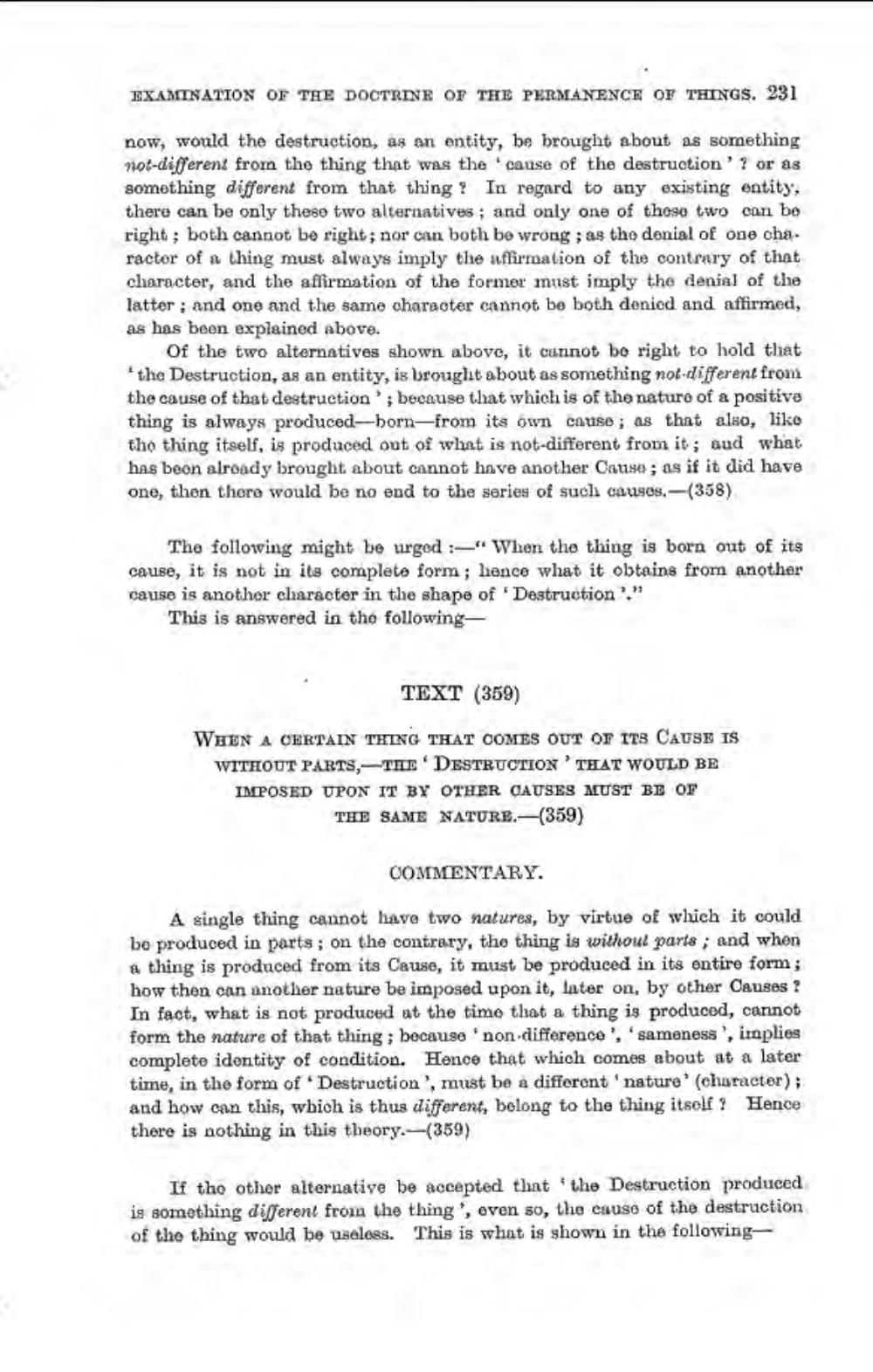________________
EXAMINATION OF THE DOCTRINE OF THE PERMANENCE OF THINGS. 231
now, would the destruction, as an entity, be brought about as something not-different from the thing that was the cause of the destruction'1 or as something different from that thing? In regard to any existing entity, there can be only these two alternatives ; and only one of those two can be right; both cannot be right; nor can both be wrong; as tho denial of one cha. ractor of a thing must always imply the affirmation of the contrary of that character, and the affirmation of the former must imply the denial of the latter; and one and the same character cannot be both denied and affirmed, as has been explained above.
Of the two alternatives shown above, it cannot be right to hold that the Destruction, as an entity, is brought about as something not different from the cause of that destruction '; because that which is of the nature of a positive thing is always produced-born-from its own cause ; as that also, liko tho thing itself, is produced out of what is not-different from it; aud what has beon already brought about cannot have another Cause; as if it did have one, then there would be no end to the series of such causes.- (358)
The following might be urged :-" When the thing is born out of its cause, it is not in its completo form ; hence what it obtains from another cause is another character in the shape of 'Destruction."
This is answered in the following
TEXT (359)
WHEN A CERTAIN THING THAT OOMES OUT OF ITS CAUSE IS WITHOUT PARTS, THE 'DESTRUCTION THAT WOULD BE IMPOSED UPON IT BY OTHER CAUSES MUST BE OF
THE SAME NATURE.—(359)
COMMENTARY.
A single thing cannot have two natures, by virtue of which it could be produced in parts; on the contrary, the thing is without parts; and when a thing is produced from its Cause, it must be produced in its entire form; how then can another nature be imposed upon it, later on, by other Causes? In fact, what is not produced at the time that a thing is produced, cannot form the nature of that thing; because non difference', 'sameness, innplies complete identity of condition. Hence that which comes about at a later time, in the form of Destruction', must be a different nature' (character); and how can this, which is thus different, belong to the thing itself ? Hence there is nothing in this theory.-(359)
If the other alternative be accepted that the Destruction produced is something different from the thing', even so, the cause of the destruction of the thing would be useless. This is what is shown in the following




